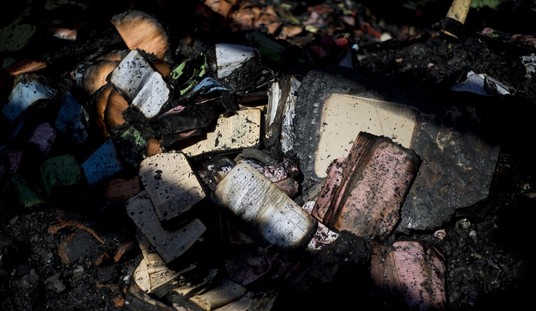Martin Wolf argues in The Financial Times, that something in the financial system failed over the last two decades.
“Governments bad; deregulated markets good”: how can this faith escape unscathed after Alan Greenspan, pupil of Ayn Rand and predominant central banker of the era, described himself, in congressional testimony last October, as being “in a state of shocked disbelief” over the failure of the “self-interest of lending institutions to protect shareholders’ equity”? …
As western policymakers struggle, their credibility lies broken. Who still trusts the teachers?
These changes will endanger the ability of the world not just to manage the global economy but also to cope with strategic challenges: fragile states, terrorism, climate change and the rise of new great powers. At the extreme, the integration of the global economy on which almost everybody now depends might be reversed. Globalisation is a choice. The integrated economy of the decades before the first world war collapsed. It could do so again.
But the argument is incomplete. Niall Ferguson observed that the bond markets did not predict the First World War; and the gist of his argument can be found here, and the synopsis is quoted below. But it underscores the main weakness of Wolf’s argument. The financial system can’t be viewed in isolation; in fact it illustrates the problem of incoherence when one part of our reality system goes out of sync with the rest of it. Incoherence is at the root of Ferguson’s argument going one way and in Wofl’s case it is necessarily true to a partial extent. It can be argued that just as the pre-Great War bond market could not internalize the political risks of its era, — that what was “out there” did not show up in the prices — and neither did the current financial system adequately reflect the huge programs in housing, welfare and speculative economic expansion in a smooth and continuous way. The information revealed itself eventually, but as super-tsunami rather than a series of rising tides. Ferguson describes what happened on the eve of the Great War.
The main question addressed is why political events appeared to affect the world’s biggest financial market, the London bond market, much less between 1881 and 1914 than they had between 1843 and 1880. In particular, I ask why the outbreak of the First World War, an event traditionally seen as having been heralded by a series of international crises, was not apparently anticipated by investors. The article considers how far the declining sensitivity of the bond market to political events was a result of the spread of the gold standard, increased international financial integration, or changes in the fiscal policies of the great powers. I suggest that the increasing national separation of bond markets offers a better explanation. However, even this structural change cannot explain why the London market was so slow to appreciate the risk of war in 1914. To investors, the First World War truly came as a bolt from the blue.
The essential thing to remember is that the current financial crisis is reflecting something underlying. To that extent we might be thankful in the long run that the financial system crashed before the geopolitical system did, and not as in the case of the Great War, in the reverse order. To that extent the economic crash foreshadowed tensions which have been building for a long time. The economic downturn is at least partially the penumbra of geopolitical, demographic and cultural risk. It is not a phenomenon unto itself. It’s not the financial system alone that is broken. If we think so, then we’ve missed the point.
The NY Times Magazine illustrates how vast the distance was between what was known and what was by following the saga of Tony Brancatelli, a Cleveland city councilman.
In 1999, Brancatelli noticed something peculiar: homes, many of which were in squalid condition, were selling for inflated prices. One entrepreneur in particular caught Brancatelli’s attention: 27-year-old Raymond Delacruz. He would buy a distressed property and, at best, make nominal repairs before quickly selling it for three or four times what he paid for it. The flips needed the cooperation of appraisers and the gullibility of home buyers. But the proliferation of mortgage companies — mostly based out of state and willing to provide loans with little documentation — also facilitated flippers. And the flippers justified the high prices to both home buyers and mortgage companies by pointing to the high prices nonprofit housing groups, like Brancatelli’s, were getting for their new construction.
We know what happened next. And in the next weeks, we’ll hear different but similar stories from other countries and other bubbles. If we bail out the financial system but put it in the hands of the politicians; that doesn’t mean our troubles have ended. It’s fair to ask whether we’ve removed or added to the political risk; whether we’ve reduced the incoherence in the system or only made it more so.
You can go to the Moon
Spend 2 weeks in space
But when you return it’s the same ol’ place
The pounding of the drum, the pride and disgrace
You can bury your dead, but don’t leave a trace
And tell me, over and over again my friend
That you don’t believe we’re on the eve of destruction










Join the conversation as a VIP Member